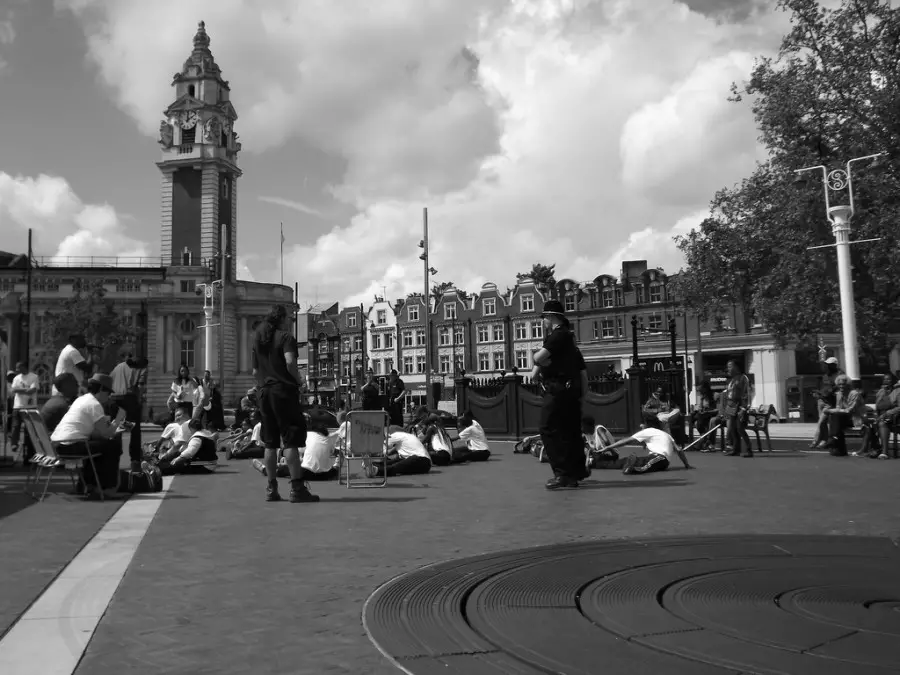As a German national that has lived in London for over 6 years now and had the opportunity of being exposed to day-to-day life in global cities such as Tokyo and New York, I increasingly look back to Germany as this romantic and idyllic place where everything is pretty much going well, people are well-off despite the global crisis and high standard housing remains affordable. This last factor in particular seems to be on everyone’s lips, as most London artists that I am introduced to instantly ask me–with a slightly jealous gaze–why I don’t live in Berlin.
The answer to it will not be the subject of my debate. Instead I want to show that the practices of gentrification and property speculation we know from the US and UK do not spare German cities, even though we want to believe that Germany is the ultimate role model for a functioning social market economy (that’s also what the political party in government keeps telling us in their election manifesto). I believe times are about to change, and have already changed on a local scale where tenants’ rights have been considerably compromised.
Before going into detail I want to highlight that German cities have a huge rental market, making up to 90% of the total residential stock (The Guardian). Vast amounts of social purpose housing was built in the years leading up to the ‘Wirtschaftswunder’ until the 1970s when guest-workers from Turkey and Italy moved to West Germany. In socialist East Germany, housing development on the other hand was managed by the Socialist Party who commissioned large scale communist style concrete blocks, some of which have been nicely regenerated in East German cities after Reunification. With increasing financial instability in local authorities in the early 2000s, government owned housing has been sold to predominantly foreign investors and property management corporations filling the empty coffers of indebted cities. Some of these property corporations like the Deutsche Annington act as ‘wholesale landlords’ to thousands of tenants who live in property they manage, withholding sufficient maintenance and heath and safety standards.

Regeneration Development in Berlin-Friedrichsfelde
On the other hand, investors incisively buy entire stock of housing to maximise the value of a part of the city through so-called ‘luxury regeneration’. A good example of this is the Märchenviertel–which translates Fairytale Quarter–in Berlin-Köpenick. This long-established community of mainly elderly people of which some have kept residence there for more than 60 years is being forced to either leave their homes or withstand the increasing mobbing practices of developers who would do anything vaguely legal to kick out enduring tenants. It is shocking to see such practices being carried out on the most vulnerable of society, with no respect to the emotional attachment to what is their home and neighbourhood. (Germans generally have a strong attachment to their homes which they rent for a considerable time.) The developers online marketing strategy–of course–speaks about much needed upgrading works, with no ambition to displacing anyone or raising prices. Bollocks! Entire houses are already empty and affordable housing looks very different than those tuned-up marketing images showing a landscape of white sofa’s and yellow designer lampshades.
As we are heading closer to general elections this September, it is not yet clear how the new government will respond to these issues. All major parliamentary parties have included the housing debate in some form or other in their electoral manifesto by proclaiming they would implement a rent brake prohibiting rents to skyrocket unlimitedly. It is clear that Germany needs to be competitive on the international property market. But what price is it willing to pay for this? Will it sacrifice the most important element of what its social market economy stands for: the ‘social’ purpose?

Euromayday Hamburg 2012 “Reclaim your place”
If the national government does not act carefully and strategically in protecting the rights of communities and tenants across Germany’s major cities, property speculation in these urbanised areas will lead to unforeseen housing shortages. And we Germans are not prepared to leave the rental market just yet, as a society that is normally highly unfamiliar with credit instruments and the mortgage environment. (Germans tend to have an emotional problem with debt, as we identify debt with notions of weakness and insecurity.)
Right to the City activists and local tenant initiatives can only highlight isolated needs in areas that are undergoing extreme tensions, but to escalate the looming gentrification crisis to a higher level we need a stronger political from the new government. I am turning somehow suspicious at the recent tenancy bill that creates new rights for quicker evictions and no rent brakes for new rentals. Built Environment minister Ramsauer recently thanked Haus und Grund (Society for Private Property) for their active lobbying activity with this new bill. This non-strategic and biased way of policy-making has to end if Germany wants to remain a family-friendly, socially sustainable and class-less society. It would be a shame if the country would loose these values in a process of stealthy investment speculation, while the government seems to silently hibernate.
Silvie Jacobi is an artist and cultural strategist studying urban geography and creative industries at King’s College London.
Images via Marco Förster and Rasande Tyskar


